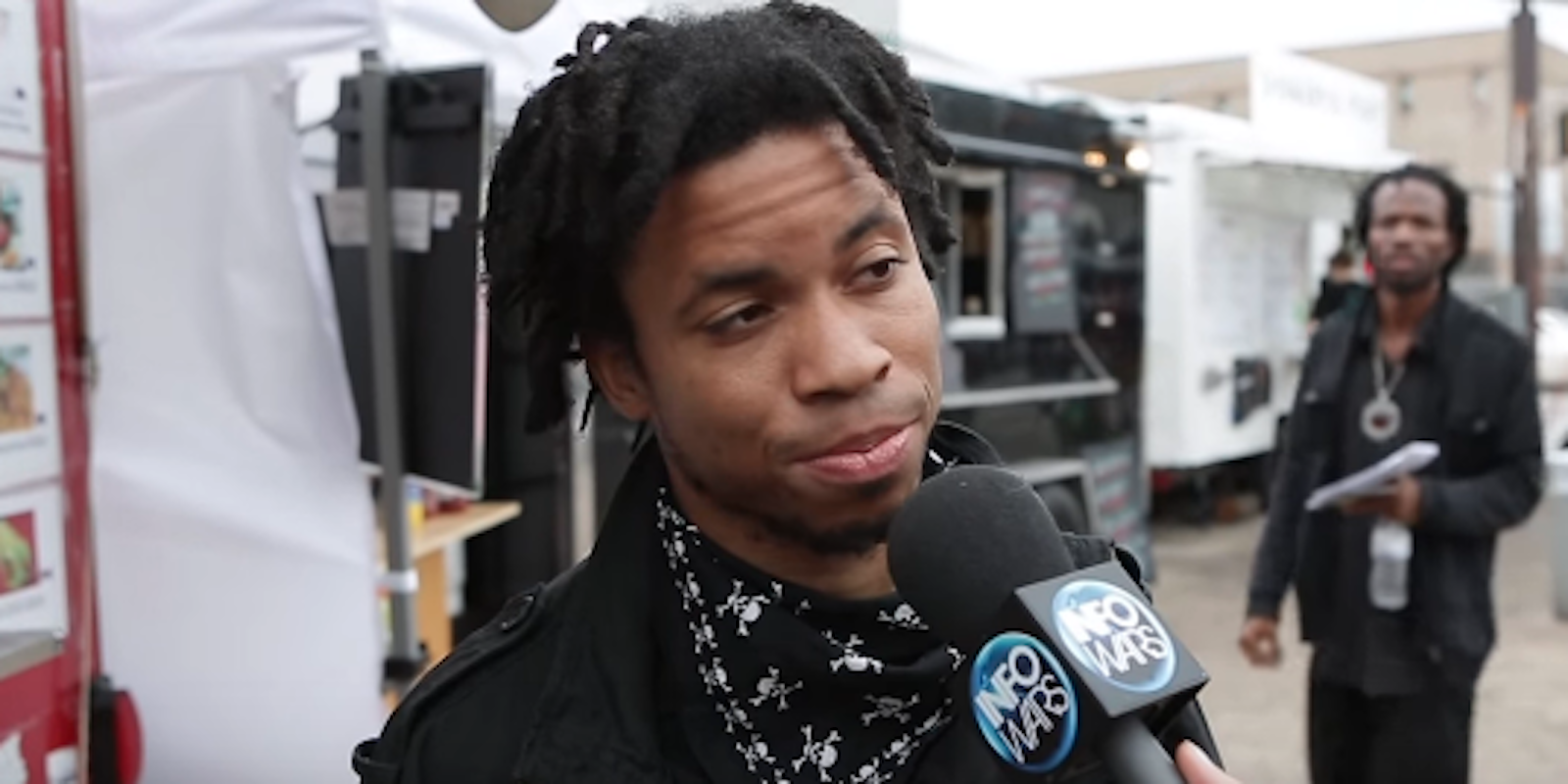The case against Rakem Balogun, who was targeted for surveillance by the FBI because of an InfoWars video, was dismissed last week and the Black activist was finally released from prison after six months’ detention.
The father of three is believed to be the first target of a secretive law enforcement surveillance program by the FBI’s Domestic Terrorism Analysis Unit, aimed at black activists that was exposed last year.
The report outlined law enforcement intent to focus on “black identity extremists” after what it described as a “resurgence in ideologically motivated, violent criminal activity” in response to “perceptions of police brutality.”
Balogun was arrest by the FBI in December 2017 over several Facebook posts criticizing police.
Special agent Aaron Keighley explained to the court, at Balogun’s trial, that the activist’s Facebook posts had been the reason for his arrest claiming they were proof he was promoting “violence toward law enforcement.”
Balogun said that his posts, in which he appeared to call a man who murdered a police officer a hero, were made in anger at how incidents of police brutality are portrayed: “I just mimicked their reactions to our killings.”
It was also revealed during his trial, that the FBI had been monitoring Balogun since 2015, when he’d attended an open-carry rally to protest against law enforcement and police brutality.
Keighley admitted that the FBI had first become aware of the protest and decided to target Balogun after seeing a video called “Armed Black Militants Prep for War” published by InfoWars—an inflammatory right-wing website known for peddling sensationalist fake news and conspiracy theories.
The video in question profiled the Huey P. Newton Gun Club, which Balogun co-founded, a guns rights group who the report claimed “held rifles as they chanted violent anti-cop statements.”
“They’re using a conspiracy theorist video as a reason to justify their tyranny?” Balogun told the Guardian, still shocked. “That is a big insult.”
The agent was unable to cite unlawful activity by Balogun at the protest to the court.
The only indictment, for illegal firearm possession, related to a gun ownership prohibition resulting from a 2007 domestic assault case in Tennessee, and was rejected as inapplicable. A district court judge in Texas completely dismissed the entire case on May 1 and Balogun walked free two days later.
In 2017, when it first appeared, the leaked FBI report on “black identity extremists” sparked backlash from civil rights organizations and Democrat lawmakers who criticized its “extraordinarily overbroad” definitions and said it was open to abuse. Some, including Brennan Center fellow Mike German, a retired FBI agent, believe Balogun’s case demonstrates exactly that.
“The justification for pretrial detention seems pretty specious since they knew he had a gun for two years,” German said to the Daily Beast. “Just the idea that a law enforcement agency feels it has the authority to do disruptive activities against people it can’t prove have committed serious crimes … if the government can target you for selective prosecution because it doesn’t like you, then what rights remain?”
Just as worrying, perhaps, is that federal law enforcement took their lead from a hyper-partisan news source known for playing fast and loose with facts and framing.
Although he is now free again, Balogun reportedly lost both his job and home while in prison.
“This has been a nightmare for my entire family,” he told the Guardian, although still describing the judgement as a “victory.”
Balogun is under no doubt that he, and other black activists, will remain under surveillance.
“It really doesn’t make a difference if I change how I communicate,” he said after his release, “obviously I have their attention indefinitely.”
Regardless, he remains undeterred, promising to continue to work: “As long as my community needs me to serve them, I’ll be there.”


